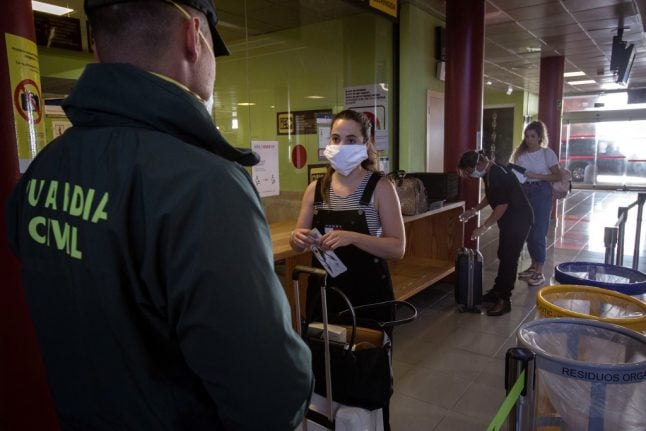The measures were outlined in the Official State Gazette (BOE) on Tuesday as part of the latest steps to minimize the spread of the coronavirus as Spain lifts lockdown measures gradually across the country,
From Friday May 15th new arrivals will have to agree to self-isolate within their home or booked accommodation for 14 days.
But they will be allowed to leave confinement to purchase essential supplies such as food and medicine or to seek medical assistance on the condition that they wear a mask at all times.
The quarantine conditions will be applied regardless of what phase of de-escalation their province is in.
Starting May 15, travelers arriving in #Spain from abroad must remain quarantined for 14 days after arrival:
➡️They will only be able to go out out for basic needs purchases, assistance to health centers or due to force majeure.
➡️ Always with a face mask.
More ℹ️ ⬇️ https://t.co/xvMqnmRVCk
— Spain MFA (@SpainMFA) May 12, 2020
However, this does not mean that Spain is opening up its borders to international travellers.
Currently the borders, both land and air, are closed to all except Spanish citizens, those who are legally resident in Spain, frontier workers or those who can prove “exceptional reason” to enter Spain.
The require to quarantine will be in place from Friday and will last throughout the State of Emergency, which is currently set to continue until May 23rd, although the government has expressed its intention to extend yet again.
“This measure is considered proportionate to the gravity of the situation and in line with the controls reestablished along internal borders by a large number of member states of the European Union,” the order said.
“The favourable evolution of the epidemic in our country and the start of the rollback make it necessary to reinforce measures of control,” it said.
“Given the global distribution of the virus and working from the principle of precaution, it is necessary that anyone coming from abroad observe a 14-day quarantine period.”
So far the only people required to quarantine on arrival were those Spanish citizens who were repatriated from outbreak hotspots of Wuhan and northern Italy, but Spain is now following the latest WHO recommendation being adopted by countries across Europe.
Airlines will be obliged to provide Spanish health aurthorities with information on passengers’ intended location for quarantine so that they can be contacted and monitored.
The health authorities may contact the people in quarantine to monitor them and if these people notice fever or any symptom compatible with Covid-19, they must inform the health services by telephone.
READ MORE:
- VIDEO: Packed flight from Madrid to Canary Islands sparks outcry
- Lifting lockdown: These are the provinces in Spain advancing to Phase 1
- Q&A: When can I travel to my second home in Spain?



 Please whitelist us to continue reading.
Please whitelist us to continue reading.
Member comments